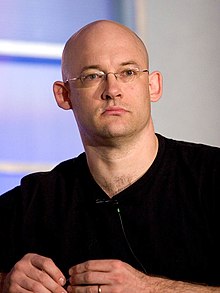Audience theory - describes the different ways about thinking about the audience
(Both of these are heavily linked)
Theodor Adorno - audience are passive consumers
- Frankfurt school of critical theory
- “Probably no important network ever corresponded completely with its genre”
- Frankfurt hypodermic model - part of the effects debate, this model is like a syringe that you inject drugs into the body so that the media injects messages into the minds of the audience and this can be addictive. It is useful because it draws attention to the power that media producers have and to the importance of the forms of media to which the audiences have access. The weakness is that the injected audience is powerless, frequently used in reference to children and women and doesn’t account the way that people use the media.
- “The view was that the masses are dumbed by the banality of the media”
I feel that this theory is useful because it helps me understand how the audience was in the past, although because this is quite an old theory it doesn't apply as much as the other theorists as now there isn't as much of a gap between the producer and the audience. Despite this it is still useful as I still believe that the audience is like a syringe as he says because the media has injected messages into myself.
Stuart Hall - reception theory
- Factors that affect this; life experience, age, culture, mood, beliefs, gender etc
- Audience in his model are active producers of meaning not passive, make sense of media text according to their social position. This approach places high value on the responses of individuals and groups because of their specific personal context
- The problems with this approach are that some researchers looking at lifestyle has more authority than a sociological approach
This theory is very useful because it can help me establish my audience by researching into the culture, mood, beliefs etc. that he states. I will know how different people will react to my trailer, will they accept it or not and I can try and make sure that people do not reject the media I have presented with them.
David Gauntlet (key individual)
- Online article - media studies 2.0 - media world is changing and the audience aren’t couch potatoes and have a greater say of what is produced
- Web 2.0 - because of platforms like Youtube, the audience can become our own producers
- encouraging more people to do their own thing. Opposite of marxist theory which states that the audience is a critical observer.
Gauntlet's theory I feel is the most fundamental for my production as it is the most relevant, the way he discusses how audience has evolved over years is so important for my trailer. I need to satisfy the needs of the audience as he believes they have more of a say over what is produced so I need to relate to that well for my trailer to work.
Clay Shirky - 'end of audience' theory
Clay Shirky - 'end of audience' theory
- Nowadays it is fragmented in groups
- Identifies new audience groupings eg; crowd funding, collaborative projects, publicity campaigns run by volunteers
- He believes that organisations have to understand and respect the motivations of the billion new participants in the contemporary media ecosystems
- He points out to the old model and concludes that the pattern has changed
This theory is quite similar to Gauntlett's but has added his own beliefs. The main point that I like is that he says that the pattern has changed and that organisations now have to be understand the motivations of new participants which I will have to think about a lot when making my film trailer.
Overall, all of these audience theorists are crucial for my film trailer as they all have relevance of the behavior of audience and have given me a greater understanding of it. It is also very important in helping me to establish my target audience for my overall production.


No comments:
Post a Comment